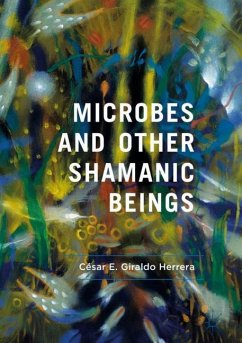
Jewish Medicine and Healthcare in Central Eastern Europe
Shared Identities, Entangled Histories
Herausgegeben: Moskalewicz, Marcin; Caumanns, Ute; Dross, Fritz

PAYBACK Punkte
49 °P sammeln!
Is 'Jewish medicine' a valid historical category? Does it represent a collective constituted by the interplay of medical, ethnic and religious cultures? Integrating academic disciplines from medical history to philology and Jewish studies, this book aims at answering this question historically by presenting comprehensive coverage of Jewish medical traditions in Central Eastern Europe, mostly on what is today Poland and Germany (and the former Russian, Prussian and Austro-Hungarian Empires). In this significant zone of ethnic, religious and cultural interaction, Jewish, Polish, and German tradi...
Is 'Jewish medicine' a valid historical category? Does it represent a collective constituted by the interplay of medical, ethnic and religious cultures? Integrating academic disciplines from medical history to philology and Jewish studies, this book aims at answering this question historically by presenting comprehensive coverage of Jewish medical traditions in Central Eastern Europe, mostly on what is today Poland and Germany (and the former Russian, Prussian and Austro-Hungarian Empires). In this significant zone of ethnic, religious and cultural interaction, Jewish, Polish, and German traditions and communities were more entangled, and identities were shared to an extent greater than anywhere else. Starting with early modern times and the Enlightenment, through the 19th century, up until the horrors of medicine in the ghettos and concentration camps, the book collects a variety of perspectives on the question of how Judaism and Jewish culture were dynamically related to medicine and healthcare. It discusses the Halachic traditions, hygiene-related stereotypes, the organization of healthcare within specified communities, academic careers, hybrid medical identities, and diversified medical practices.














